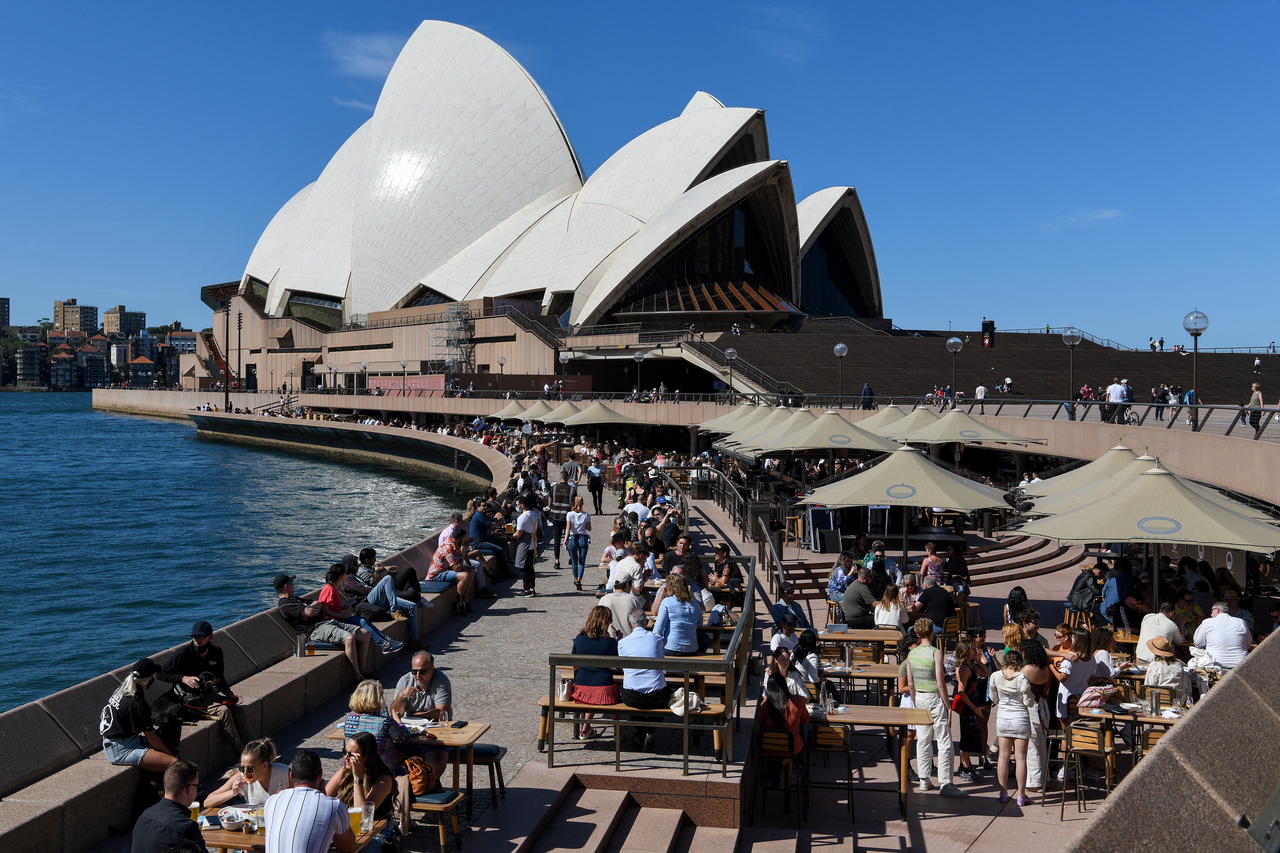Australia moves to reopen foreign travel but states all have plans of their own
Sign up now: Get ST's newsletters delivered to your inbox

New South Wales will end all hotel and home quarantine requirements from Nov 1, 2021.
PHOTO: EPA-EFE
Follow topic:
SYDNEY - Australia will start allowing international travel for its citizens and residents from next month. But its plans remain mired in confusion and no date has been set for admitting foreign visitors from Singapore and elsewhere.
After more than 18 months of strict border closures, the most populous state, New South Wales (NSW), will end all hotel and home quarantine requirements from Nov 1 and lift its cap on the number of weekly arrivals from overseas.
But the move will initially apply only to vaccinated citizens and residents of Australia and their families, and will exclude foreign travellers.
NSW Premier Dominic Perrottet indicated this week that he would like to allow all international travellers - including foreign residents - to enter before the Christmas holidays.
"There are so many people across our state who rely on international students and who rely on tourism for work," he said.
But the decision on when to open the door to foreign arrivals lies in the hands of the federal government, which oversees visas.
Prime Minister Scott Morrison is keen to reopen borders quickly but is wary of allowing foreign travellers to enter before all Australians abroad have been able to return.
It is believed that thousands of Australians have been unable to return due to the current caps on international arrivals.
Mr Morrison had previously indicated that tourists and other travellers will not be allowed to enter Australia until early next year. He said skilled migrants and students are likely to be the first to enter, followed by all other international visitors.
"We're not opening up to everyone coming back to Australia at the moment," he told reporters last week. "In the first instance, it will be for Australian residents and their families. We will see how that goes and then we'll move to the other priorities."
But Australia could still open travel bubbles with specific countries to allow quarantine-free travel for vaccinated arrivals. The federal government said this week that it is looking to introduce such a bubble with Singapore, saying the plan is in "rapid development".
Adding to the confusion over the reopening plans, the various states and territories have all been setting markedly different rules and dates for reopening - both to travellers from other states and from overseas - and adopting different plans for scrapping hotel quarantine.
These state-by-state variations are partly because some have no local Covid-19 cases and are pursuing an elimination strategy, while others are in the grip of undefeatable outbreaks.
Currently, the worst outbreak is in Victoria, which recorded 1,749 local cases on Tuesday (Oct 19) and 11 deaths.
It has struggled to suppress its outbreak despite a strict lockdown and a steady rise in vaccination rates. Though daily case numbers have exceeded 1,000 since Sept 30, the state is pushing ahead with easing its lockdown from Thursday.
The Australian Capital Territory, which includes Canberra, has also struggled to overcome its outbreak, recording 24 local cases on Tuesday. In contrast, NSW has had a sharp drop in cases, recording 237 local infections and four deaths on Tuesday.

A relatively deserted street in Melbourne on Oct 19, 2021.
PHOTO: AFP
All other states and territories have either zero cases or have experienced occasional cases that have not led to outbreaks.
Currently, Australians returning from abroad must spend 14 days in a quarantine facility, typically at their own expense.
Victoria state, which includes Melbourne, plans to end hotel quarantine for vaccinated international arrivals but will switch to home quarantine, though it will be shorter than 14 days.
Queensland state said it will allow vaccinated travellers from all other states - including those with Covid-19 outbreaks - to enter without quarantining from mid-December.
International arrivals, if vaccinated, will be allowed to undergo home quarantine for 14 days. When the state's eligible population is 90 per cent vaccinated, quarantine will be abandoned.
The varying rules may soon mean that residents in Sydney and Melbourne will find it easier to travel overseas than to nearby states which still have strict border closures.
As Mr Perrottet noted last week, Sydney residents will "be travelling to Bali before Broome (in Western Australia)".
Rules for international vaccinated travellers
Australia is likely to allow non-Australian visitors from early next year, aside from possible earlier bubbles with partner countries.
Quarantine rules will vary by state.
New South Wales: Quarantine-free entry from Nov 1
Victoria: Likely to adopt home quarantine soon, before moving to no quarantine
Queensland: Home quarantine from mid-December, before moving to no quarantine
Western Australia: Unlikely to ease 14-day hotel quarantine until next year
Other states and territories: Rules vary, most are likely to allow seven-day home quarantine by end of year

